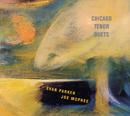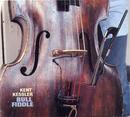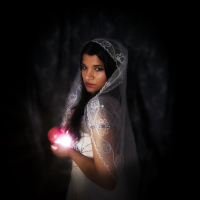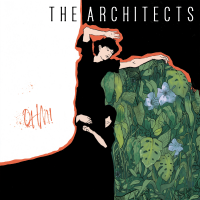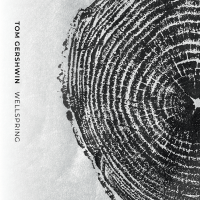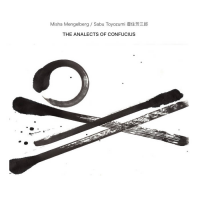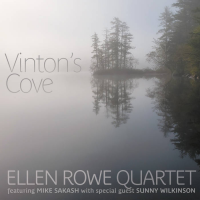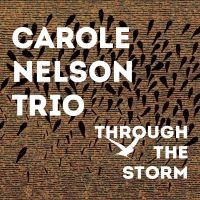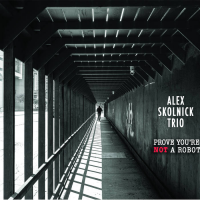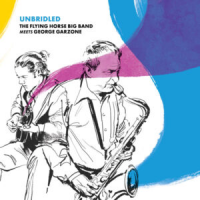Home » Jazz Articles » Album Review » Evan Parker & Joe McPhee: Chicago Tenor Duets
Evan Parker & Joe McPhee: Chicago Tenor Duets
Case in point: this highly coveted set by Evan Parker and Joe McPhee, a meeting years in the making and a disc stymied by delays of years in duration. While particulars are slim and shrouded (the album itself is issued sans liner notes and contains only the briefest session details) the music is anything but, as uncompromising and demanding as is probably expected from these two modern doyens of the tenor saxophone. Both men are intimately familiar. Tenor, recorded in at a farmhouse in Switzerland and released on Hat Hut (now Hatology), set the standard back in 1976. Parker’s initial (and to date only) entry would curiously come decades later in the form of Chicago Solo , not coincidentally also on OkkaDisk. Both albums are superlative monuments to what the tenor saxophone can be capable of in the right hands.
The duets are designated solely by numbers and the simplicity places emphasis squarely on the music without distraction. There’s a tremendous dynamic range set up between the two from the start, gliding from near silent whispers to piercing pitch sustains. Stereo separation allows for easy differentiation between Parker on the right and McPhee hugging the left. Each man bends to the other’s vernacular with Parker doling out some of his most linear and lyrical jazz phrasings in years and McPhee mimicking the creased multiphonics and split tones that are his partner’s regular sonic nomenclature. Seven of the dozen tracks hem in less than six minutes and relative brevity adds appreciably to the contrasting nature of the improvisations. For the opening face-off McPhee’s velvety rasp, stained with a lulling melancholy, is matched by Parker’s own line, which twists and tapers through the abyss of his horn’s lush lower register. The barking siren blasts and whinnying ululations of the follow-up are a completely different cast, pummeling the eardrums in a most delicious way.
Later the action loosens as Parker plays probingly with circular breathing and McPhee answers with carefully inserted counterpoint. The third piece begins as an exercise in reed pops, flutter tonguing and keypad fingering, before each man slides once again into an icy stream of stuttering tones pockmarked by patches of disarming melodicism. What’s perhaps most consistently surprising about the program is how accessible so much of it is. Extended techniques arise, but they frequently take a peripheral seat to a visceral lucidity. Paying attention for over an hour may seem a strenuous task and to be sure there are sections that lag, particularly on the lengthier pieces, but the overall effect is downright inebriating in its ability to mollify the senses.
When Ammons went up against Stitt, or Lockjaw tangled horns with Griff, the audience usually expected a clear-cut victor. The divisive atmosphere shot through cutting contests of old is a distant memory on this date, and the very idea of choosing a champion seems preposterous. So much transpires and with such complexity of execution and emotion that any panel of judges would sure to be flummoxed. That’s not to say that each musician doesn’t test and goad the other, just that the prodding is done non-combatively and in the interest of mutual edification. The vague shape of a mushroom cloud is visible in the oil painting abstract on the disc’s cover. Such an image seems a fitting harbinger of the seismic impact these sounds are sure to make on the community of creative music.
OkkaDisk on the web: www.okkadisk.com
Track Listing
Duet #2/ Duet #3/ Duet #4/ Duet #5/ Duet #6/ Duet #7/ Duet #8/ Duet #9/ Duet #10/ Duet #11/ Duet #12/ Duet #13.
Personnel
Joe McPhee
woodwindsEvan Parker- tenor saxophone; Joe McPhee- tenor saxophone. Recorded: May 11, 1998, Chicago.
Album information
Title: Chicago Tenor Duets | Year Released: 2003 | Record Label: Okka Disk
Tags
PREVIOUS / NEXT
Support All About Jazz
 All About Jazz has been a pillar of jazz since 1995, championing it as an art form and, more importantly, supporting the musicians who make it. Our enduring commitment has made "AAJ" one of the most culturally important websites of its kind, read by hundreds of thousands of fans, musicians and industry figures every month.
All About Jazz has been a pillar of jazz since 1995, championing it as an art form and, more importantly, supporting the musicians who make it. Our enduring commitment has made "AAJ" one of the most culturally important websites of its kind, read by hundreds of thousands of fans, musicians and industry figures every month.


